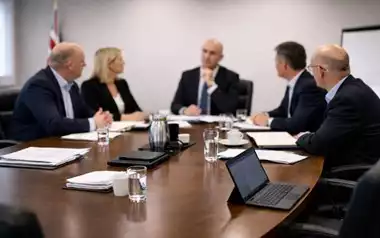Limits too High
MPs clashed during this week’s House of Commons debate about amendments to the Gambling Act 2005 and the Draft Gambling Levy Regulations. The debate centred around the size of betting limits, the introduction of the proposed levy and the impact it will have on smaller businesses.
New amendments to limit players' spending on each spin of slot games were originally mooted on 27 November last year and debated at the end of January. The government announced the limits alongside a mandated levy.
The levy aims to generate £100 million for the research, prevention and treatment of gambling harms. While the limits will mean players aged between 18 and 24 would be capped at £2 per spin, while gamblers over 25 can spend up to £5 per spin.
The Chair of the All-Party Parliamentary Group (APPG) for Gambling Reform is former Conservative party leader Iain Duncan Smith. While he supports setting limits, he argues that £5 is too high. The MP has issues with the disparity between £2 limits in physical shops and £5 limits online. He believes this higher limit for online players will push more gamblers towards digital platforms, which he views as carrying a higher risk of addiction.
The now Conservative MP for Chingford and Woodford Green in North London and condemned online slot games as: “available anytime… marketed to every current and potential account holder, and offer unrestricted access to high-speed and addictive products.”
A Watershed Moment
Stephanie Peacock, Labour MP and Parliamentary Under-Secretary of State for Culture, Media and Sport, described online slot games as “the highest risk gambling product” because they have the highest average losses of any online product. Online slots are also easy to binge-play. She noted to the house that the gambling industry in the UK generates £6.9 billion annually, with online slots contributing £3.6 billion, accounting for a 52.2% majority of the total figure.
Peacock also talked about the levy and stated it is a watershed moment. She said it would provide the government with the opportunity and the means to establish the right projects and services, which will operate with clear objectives. She finished by saying: “We want a world-leading funding and commissioning system to reduce gambling-related harm.”
The Conservative MP for Old Bexley and Sidcup in Outer London, Louie French, argued that the mandated levy would unequally affect small operators and bookmakers on the high street.
Operators not Delivering
However, Duncan Smith strongly dismissed these concerns by admonishing the gambling industry and depicting the mandatory nature of the levy as necessary because operators fall short of expectations while the levy is voluntary. He said: “The good (members of the gambling industry) contributed; the bad ones did not, or when they did, it was peanuts.” He added that without the levy's mandatory nature, the money wouldn’t reach many of the community groups and charities that distribute the funds.
Another response to French came from Peacock, who pledged to review the stake limits within five years of implementation to monitor whether customers are pivoting towards the black market.
Cameron Thomas, the Liberal Democrat MP for Tewkesbury who also sits on the APPG, agreed with the changes and called for more restrictions on gambling adverts. He also wants regulation of video game loot boxes, which have been tied to problem gambling issues.










